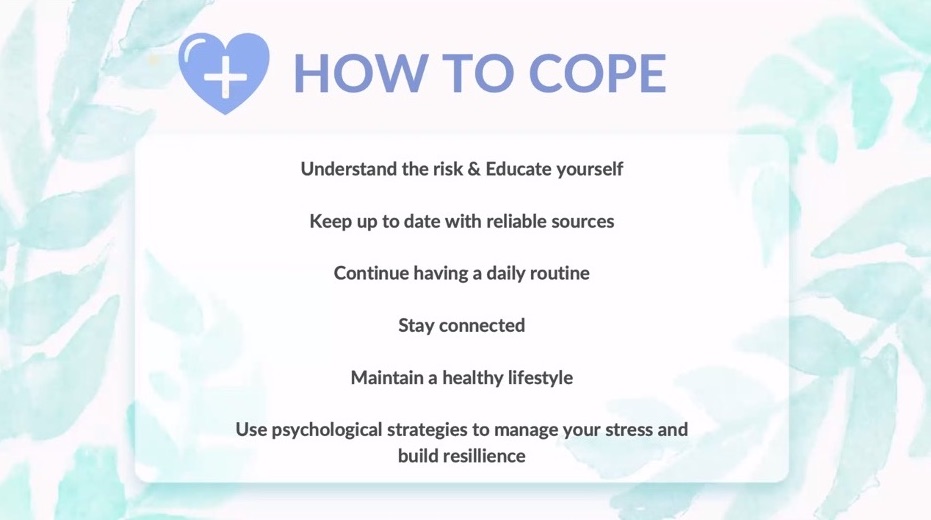Mental Heath and Wellbeing during and beyond lockdown
Steps to help you deal with remote working and social distancing.
Since the outbreak of Coronavirus began, we have been speaking with business leaders about how they are dealing with the sudden need to change the typical working practices of their businesses and their employees.
While the logistics of remote working are challenging, the real challenge lies in ensuring the health and wellbeing of home-working employees. It is important not just for their own mental health, but also to ensure your business stays productive. With this in mind, we have been attending webinars organised by our friends at Thrive, the mental health specialists. As a result, we were able to give our team some guidance on how to cope with remote working and social distancing. After learning just how useful our team have found it, we thought it would be good to share it with you. Hopefully it will benefit both yourself and your teams, as much as it has our own. (Slides by Thrive.)

- It is important to remember that there is no right or wrong reaction to our current situation. Everyone’s perception of the situation is different and can depend on their previous experiences.
- Try not to over-indulge on news as this can increase stress and anxiety. For example, try limiting your consumption to just one session in the morning and one session in the evening. Make sure it is from reliable sources.
- Practice a new skill or interest, or use your extra time to focus on an interest or hobby you’ve not had time to do for a while.
- Writing down your worries or concerns can help you look at them more objectively. This can help you free your mind from them throughout the day. Actually, seeing them written down can help you process them, identifying just how serious they are or are not. It will also help you think about ways to either remedy or relieve them.
- Stick to a healthy sleep routine – both waking up and going to sleep. If you are someone who has difficulty going to sleep, creating a pre-sleep routine like a hot bath or relaxation techniques can aid this.
- Don’t use alcohol or drugs as coping mechanisms.
- Use technology! Apps are available on the app store – such as the one from Thrive. These can help through techniques such as Cognitive Behavioural Therapy, relaxation exercises (deep muscle relaxation, calm breathing, meditation, self-suggestion and applied relaxation). Always look for ones which are backed by reputable research, the NHS, or recommended by respected curators like those at Apple’s own app store or similar.

- Be really conscious of work time and personal time, and ensure you separate the two. This will help you work more productively during work time, and similarly relax to the max outside of work.
- Ensure your work from home environment is set up in a way which maximises the resources needed to work productively, and minimises distractions.
- On workdays: Get up, perhaps do some morning exercise so you don’t miss out on the exercise you usually get though travelling into work, change into work clothes to get into the right mindset.
- Seek communication with your managers and colleagues: don’t just rely on the morning dial-in team meetings, try to replicate the normal chat you would usually have. Perhaps consider arranging a lunch, mid-morning or mid-afternoon coffee video chat or phone call. Be spontaneous. We are all missing the face-to-face daily contact we are used to. Experiment and find new ways to compensate. Have conversations with colleagues, friends and family members in and out of work to share your experiences. These approaches will minimise the feeling of isolation. If you are feeling particularly concerned about the current situation, hearing people speak with similar views, more practical opinions or simply just being able to talk about them can significantly reduce the stress you may be feeling.
- Remember, this is a phase of adjustment and it is okay to feel cautious or anxious about that. Look for ways to overcome these emotions or help reduce them.
- After work, change out of your work clothes so you can get into your ‘you time’ mindset.
- Roles and goals can change during these unprecedented times. Understand and be open to that. If you aren’t happy doing something or don’t understand why you are being asked to do it, feel free to ask.
- Don’t be afraid to ask for help or support with work, or personal issues.
- Remember, as with most things in life there is no ‘one size fits all’ when it comes to remote working, social distancing or dealing with the stresses and strains we are all experiencing. Be open, experiment and enjoy discovering what works for you – and what doesn’t!
If you have found this useful, we will be looking into other ways in which you can support your teams and your business on the coming weeks and months and would like to hear from you. You can also visit Thrive’s YouTube channel which hosts a number of webinars around this and other areas of mental health support here
James Dodd
Martin Tripp Associates is a London-based executive search consultancy. While we are best-known for our work across the media, information, technology, communications and entertainment sectors, we have also worked with some of the world’s biggest brands on challenging senior positions. Feel free to contact us to discuss any of the issues raised in this blog.